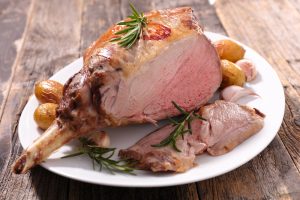Public switched away from turkey at Christmas, figures say
Consumers switched away from turkey during Christmas 2022 and favoured other meats such as lamb, new figures suggest.
The data from retail specialists Kantar show that consumers across GB spent £2.7m less on turkey crowns and joints compared with the previous Christmas period.
The main beneficiaries were chicken and lamb, with £1.2m more spent on lamb in December 2022.

The decline in turkey sales over the festive period may have been caused by the UK’s ongoing bird flu crisis, which has seen over 600,000 turkeys culled.
Responding to Kantar’s data, Hybu Cig Cymru – Meat Promotion Wales (HCC) has hailed the positive figures for lamb.
The levy board’s research showed that consumers were potentially switching away from turkey in 2022.
Farming UK